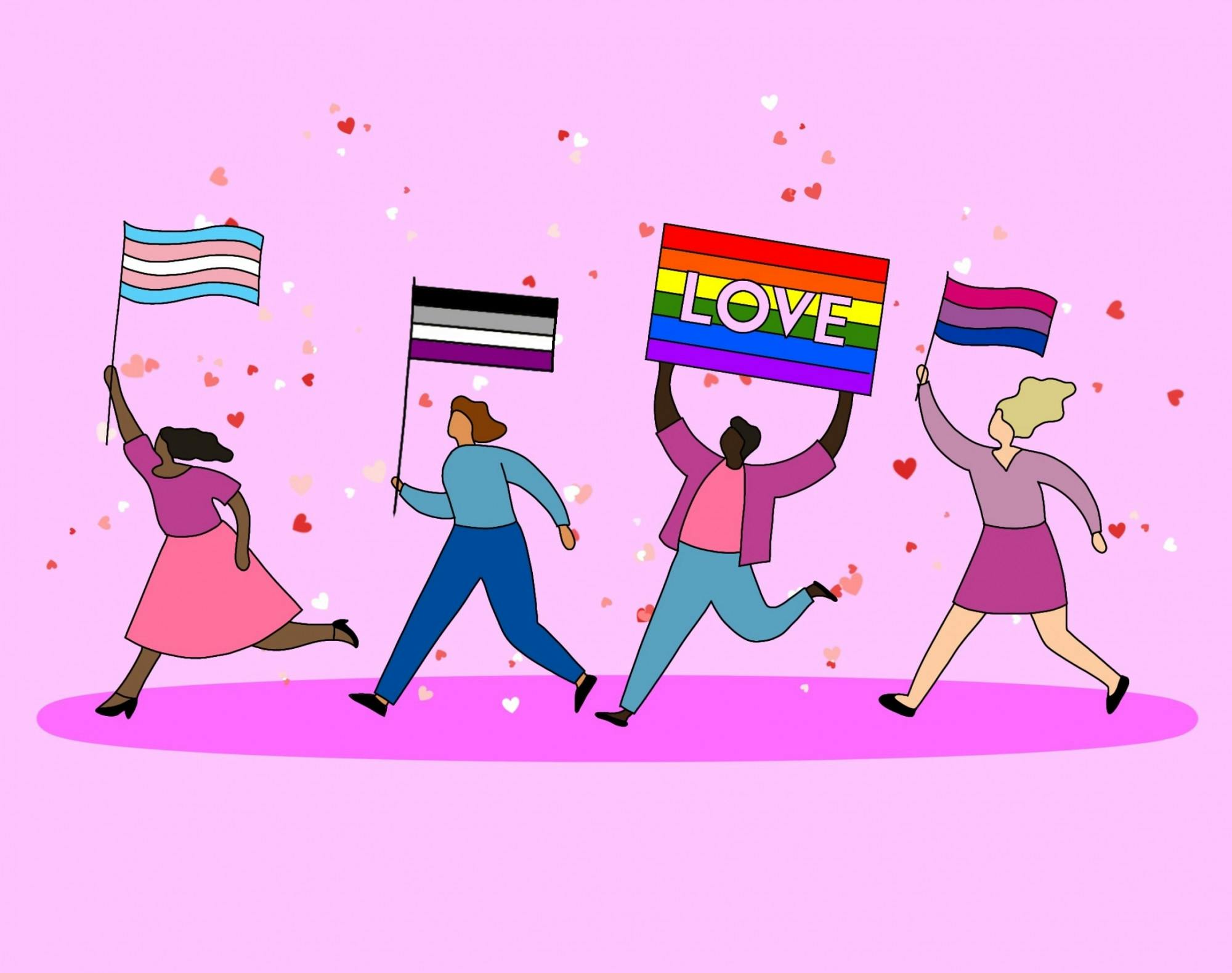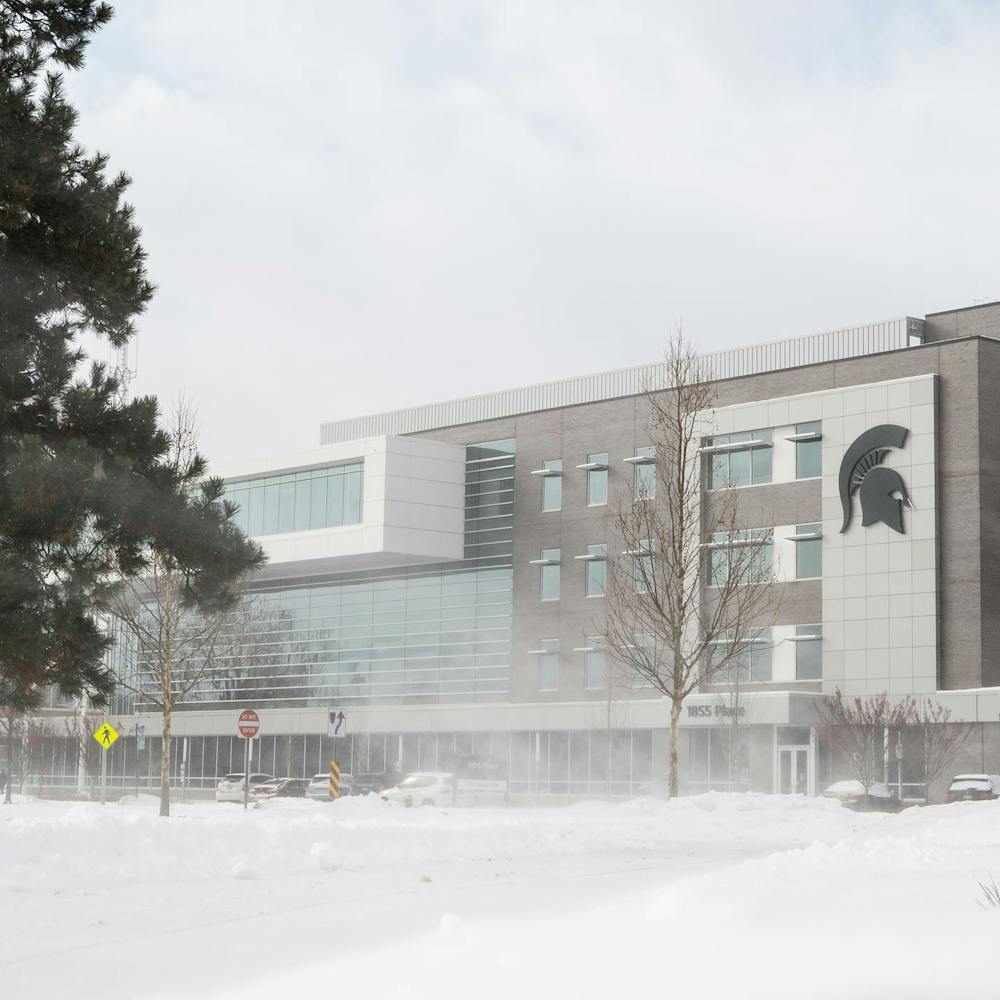With nearly 50,000 students, MSU is one of the largest universities in the nation. While it is still a predominantly white institution, its large population draws in people with diverse backgrounds and different identities.
For many students, especially those who are part of the LGBTQ+ community, the culture of MSU is a stark contrast to their high school experiences.
“My high school was 700 kids, so my graduating class was less than 120,” social relations and policy senior Jordan Aliff said. “We were really tiny. I grew up right outside of Detroit, so racially we were really diverse, but sexuality-wise, I’d say straight is always considered the norm. There weren’t a lot of ‘out’ gay kids, I was one of two from my graduating class.”
Aliff identifies as gay and gender-nonconforming. He said that while his high school, Hazel Park High School, had an LGBTQ+ club, it was not very popular, and he was not a member of it.
Aliff said that being gay was not something that was widely discussed at his school. While he feels lucky that he was never personally targeted, he has friends that were.
History education freshman Allyson Maloney, who identifies as bisexual, said that her high school experience was similar to Aliff's because spaces for the LGBTQ+ community to feel accepted were not widely advertised or used.
“I didn’t really come out until the middle of my sophomore year, so prior to that there was never really anything super outwardly supportive (at my high school),” Maloney said. “Obviously, there was a GSA (Gay Straight Alliance) but that was never huge or anything. Honestly, I didn’t really know it was a thing until my junior year.”
While Maloney said that Haslett High School never did anything outwardly homophobic, it never went out of its way to make students feel accepted. She said that it wasn’t until her senior year that she realized that there were more than just a handful of students who were also part of the LGBTQ+ community.
“I just feel like we weren’t really represented that well, and if we were, it was clubs that were doing it," Maloney said.
In the months after she came out to her close friends, Maloney said that she was just trying to "get through" high school. However, Maloney later became eager to share this part of herself with her volleyball team, people she cared a lot about.
“I was shaking so bad I wanted to cry," Maloney said. "They were actually really nice about it and started cheering for me. But they had a bunch of questions, so many questions. And I’ll answer questions because I don’t really mind, but they really didn’t know anything. After hearing that I realized, ‘Wow, people really don’t know a lot of stuff.'"
"That’s what really bugged me the most, that people have all these questions, and they can find the answers if they really wanted to. So it wasn’t that they weren’t supportive, it was just that they didn’t know,” Maloney said.
Social relations and policy and sociology sophomore Thomas Dolinka, who identifies as asexual, has also experienced what it is like to be met with questions. He said that the general population is relatively uneducated on what it is to be asexual.
“I think that was because there was almost an expectation of having sexual romantic attraction,” Dolinka said. “I would have friends who would be like, 'Do you have a crush on anyone?' and I just chose random people and knew that I would never have to act on it because it was just something that was expected.”
Dolinka said that there was a good amount of queer people at his high school, Traverse City Central, and that he felt supported by most teachers and his parents. However, he still faced challenges when coming out as asexual. Some of these challenges, he said, are different than what one would experience when coming out as gay or bisexual.
“The influence of allonormativity, of experiencing sexual attraction and having that be the norm, is actually, in my experience, far stronger than heteronormativity," Dolinka said.
Dolinka has to explain his identity to others a lot, and while he is happy to, he understands that others don’t want the burden of having to explain themselves.
Since coming to MSU, Maloney said that she has been excited to see the large number of clubs and LGBTQ+ organizations on campus, which she hopes to join. She has also noticed that, in contrast to her high school, many professors will share their pronouns.
“Just that little thing can make someone feel so good and it’s not that hard to do," Maloney said.
Aliff has also noticed proper pronoun sharing on campus, but that it varies from college to college. He said that he feels that a university-wide policy would raise awareness that pronouns are important to addressing people properly. However, that's not his only concern.
Support student media!
Please consider donating to The State News and help fund the future of journalism.
While Aliff feels relatively safe on campus, he has had poor experiences when he ventures into East Lansing's downtown area, including hearing slurs. Clubbing in East Lansing can be unsafe for queer people, he said, especially if you present yourself outside of the binary.
Aliff said he has also been able to learn more about how his identity as a gay white male differs from other people with other identities, how they are in the same community as queer people but are viewed differently compared to how he presents. He has been able to take classes that teach him about sex, gender and understanding the binary.
Dolinka said that while he generally believes there is no malice towards queer people, the structure of MSU can feel kind of isolating and make it hard to create relationships.
“There's such an emphasis around sex and sexuality just existing on campus that it's particularly weird as an asexual person,” Dolinka said. “I definitely am more comfortable being open about who I am here."
"I feel safe being queer here.”
Discussion
Share and discuss “Students share their experiences, struggles becoming a part of MSU's LGBTQ+ community” on social media.







